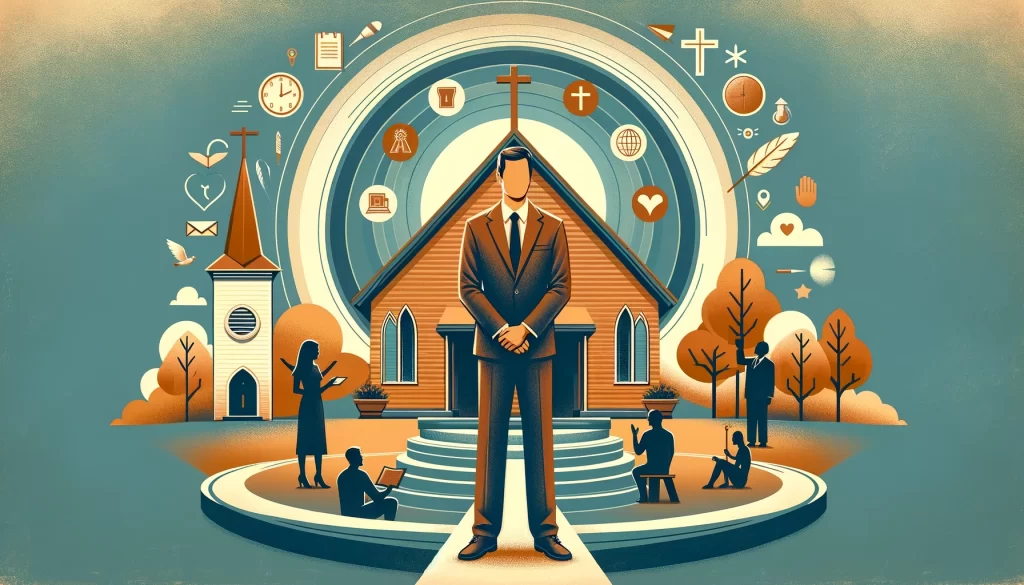 #
#
National Association of Christian Ministers How to Series: Ministry
The role of a pastor in a Christian church can vary depending on the denomination and tradition. Generally, a pastor is responsible for providing spiritual guidance, teaching and preaching the Bible, and leading the congregation in worship and prayer.
Some specific responsibilities of a pastor may include:
1. Preaching and Teaching: The pastor is responsible for delivering sermons and Bible teachings during worship services and other church events.
2. Providing Pastoral Care: The pastor may offer counseling, visit the sick and elderly, and provide support to those in need.
3. Leading Worship: The pastor may lead worship services, including prayer, music, and other religious ceremonies.
4. Administration: The pastor may oversee the day-to-day operations of the church, including managing staff, finances, and facilities.
5. Evangelism and Outreach: The pastor may lead efforts to evangelize and reach out to the community through events, missions, and other outreach programs.
Overall, the pastor serves as a spiritual leader and guide to the congregation, helping to foster a sense of community and encourage spiritual growth among the members.
Continued Deeper
The role of the pastor in the Church and in overall ministry encompasses a multifaceted array of responsibilities, deeply rooted in spiritual guidance, community leadership, and personal example. Pastors are often seen fulfilling four primary roles within the church: shepherd, teacher, leader, and servant. They are tasked with guiding and teaching the congregation, leading worship, and serving as role models for the community.
Pastors provide crucial spiritual guidance, teaching and preaching the Bible, and leading the congregation in worship and prayer. Their responsibilities may also include:
-
- offering counseling,
- visiting the sick and elderly, and
- supporting those in need, highlighting their role as caretakers of their congregation’s spiritual and emotional well-being.
A significant aspect of the pastoral role is leading by example through a life of prayer and discipleship, aiming to transform the church into a sanctuary for spiritually transformed lives. This involves prioritizing the presence of God and leading people to experience His grace and power.
Growth and revitalization of the church are also heavily influenced by the pastor’s leadership. The attitude of the pastor towards the church’s mission—particularly their commitment to winning people to Jesus Christ—is a critical factor in the church’s growth and vitality. Pastors who display zeal for evangelism and who can articulate and lead towards a shared vision often see growth within their congregations.
Furthermore, the role of a pastor extends beyond traditional views of leadership to include:
-
- equipping church members to discover and use their spiritual gifts,
- initiating necessary ministries within the church and community, and
- recruiting appropriately gifted people for these ministries.
This approach emphasizes the pastor’s role in facilitating an environment where church members can hear God’s voice and find their place in ministry, aligning with a more biblical view of equipping.
In conclusion, the pastor’s role is dynamic and crucial for the health and growth of the church, requiring a balance of spiritual leadership, pastoral care, discipleship, and community engagement. By embracing these responsibilities, pastors can significantly impact their congregations and the broader community, fostering environments of spiritual growth and transformation.




